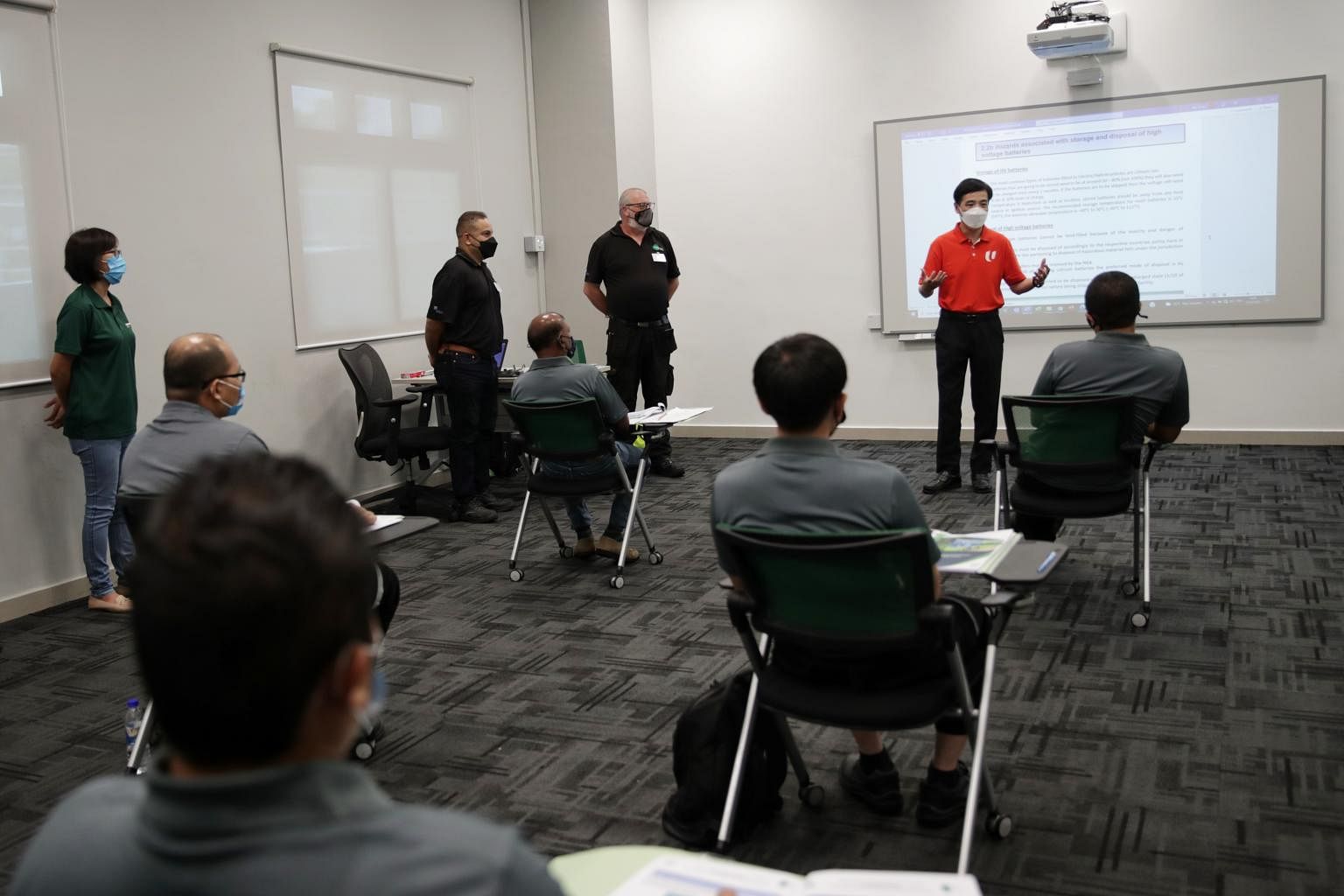SINGAPORE - The National Trades Union Congress (NTUC) is calling for Central Provident Fund (CPF) contribution salary ceilings to be reviewed to ensure middle-income workers have enough retirement funds in their accounts.
This will allow CPF savings to keep pace with wage growth, and it is one way the labour movement is looking to improve retirement adequacy for workers here, said NTUC deputy secretary-general Heng Chee How on Tuesday (Feb 15).
CPF salary ceilings were last raised six years ago, when the Ordinary Wage ceiling went up from $5,000 a month to $6,000 a month.
This is the maximum base from which CPF contributions are calculated.
For Additional Wages, like annual performance bonuses, the ceiling was also increased commensurately that year.
Speaking to the media during a visit to Ulu Pandan Bus Depot, where he interacted with older bus technicians who had been reskilled to service electric buses, Mr Heng said the end goal is for Singaporeans to retire as best as possible.
Noting that it has been years since the CPF salary ceilings were adjusted, he said it is not unusual for this to be reviewed from time to time to keep pace with wage growth.
"When the general (wage) level goes up, a smaller and smaller percentage of the total pay will earn you CPF savings. If more of that salary level can be eligible for CPF, then workers can save more," he said.
To help workers save more for retirement, employee and employer CPF contribution rates for workers aged above 55 to 70 years old were raised this year, by a total of 1.5 to 2 percentage points, Mr Heng added. Higher interest rates are also key.
Last week, the Housing Board and the CPF Board said CPF interest rates will be unchanged in the second quarter of this year - at up to 3.5 per cent a year for the Ordinary Account and up to 5 per cent a year for the Special and MediSave accounts.
However, Mr Heng said the best way for older workers to save for retirement is for them to stay employed and remain in their jobs longer.
That is why NTUC has been pushing for more working years, including extending the retirement age, which will be progressively raised starting this July, from 62 now to 65 in 2030, he added.
Warning about the risk of structural unemployment to older workers in the public transport sector and other industries that are likely to be affected by technological shifts and the move to a low-carbon economy, Mr Heng called on companies to be proactive in reskilling and upgrading their workers, and coming up with a proper plan to do so.
This is something NTUC takes seriously, he said, and it is where company training committees, which NTUC has been encouraging firms to set up, can come into play.
"The most important thing is that last-mile mechanism... You need the actual training to take place. You need the right people to be sent (for training) and it needs to be sustained," Mr Heng added.
He said the training of bus technicians by SBS Transit, which operates Ulu Pandan Bus Depot, in preparation for the electrification of public buses is encouraging.

"(This) did not happen by chance. It arose out of company training plans and sending specific workers for this training," he added.
Many bus technicians are not young, hence it is important to make sure they retain, or even enhance, their employability and value at work, Mr Heng said.
"Electrification. It is a significant change. And they have to learn new skills in order to be able to work effectively and safely... They themselves understood the situation and want to get retrained, and they are happy that their company organises it."
NTUC said in a statement that it is crucial to scale up company training committees in industries that face the same risks of structural unemployment, such as the petrochemical industries and the power, gas and water sector.
It noted that demographic changes, such as a rapidly ageing population, will also bring about increased demand in a range of job roles and opportunities.
Calling for employers, workers, unions and government agencies to work together to identify the skills building that is needed, NTUC said that with suitable professional conversion and placement, it is possible for older workers to take on these new roles and opportunities.
Mr Heng added: "This way, we can give workers of all ages, in particular our older workers, that chance to be with the company in its future and not in its past."


